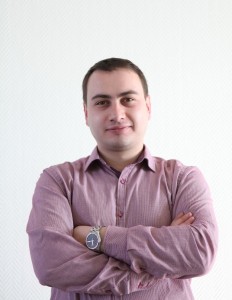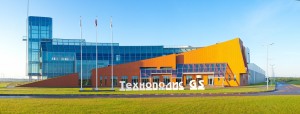
After more than 40 years of operation, DTVE is closing its doors and our website will no longer be updated daily. Thank you for all of your support.
Interview: Sergey Dolgopolsky, GS Group
Russia’s GS Group, supplier of technology to pay TV leader Tricolor TV, has ambitious international plans. Director of foreign broadcasting projects at GS Group Sergey Dolgopolsky talked to DTVE about what the holding company can offer.
It is now one year since Cambodia’s first digital pay TV service, One TV went on air. The service is operated by GS Group, a diversified international holding with Russian origins and Suisse headquarters that builds – among other things – the set-top boxes and key technologies used by the leading Russian satellite TV platform, Tricolor TV. The project was implemented in cooperation with the largest Cambodian commercial conglomerate, Royal Group of companies.
GS Group has for some time been looking to take the expertise it has built up by providing the infrastructure for Tricolor TV to international markets – the company already provided the infrastructure for Ukrainian DTH operator Lybid TV – and heralded the Cambodian launch as the first of many in emerging markets around the world.
GS Group is expanding the number of channels on offer from One TV – from 50 to 80 – using its existing five digital-terrestrial frequencies.
Having successfully launched in Cambodia, GS Group is now looking to launch its next service, with Pakistan the most likely territory. According to Sergey Dolgopolsky, GS Group has already established a local subsidiary and is set to participate in a competitive tender for the license to operate a DTH platform in the country. “Pakistan is a very big opportunity – it will be a tough competition but we will try to do our best,” says Dolgopolsky, who expects a decision before the end of the year.
Other territories being considered for launches include Bangladesh, which, like Pakistan, is one of the few territories remaining without a legitimate national DTH broadcaster yet. He says GS Group is also looking at other countries in Asia including Indonesia. The company has also competed for licenses further afield – including in Venezuela in 2009.
“Much more difficult – but interesting – is Africa,” says Dolgopolsky. He says GS Group is assessing the prospects for services that target a wider range of the population than those that have been attracted to pay TV services by now.
According to Dolgopolsky, GS Group has a number of prerequisite conditions for its international ventures. “We decided to use our technology experience and base and share the risks and profits with local reliable partners,” says Dolgopolsky. A key condition is that GS Group is the sole technology supplier, including its CAS, middleware and – in the majority of cases – set-top boxes. Another is that it becomes the majority shareholder in the venture, as in the case of One TV where it holds a 51% stake.
The company can supply equipment manufactured in Russia at its facility in Technopolis GS located in the town of Gusev in the Kaliningrad region or it can use local subcontractors. It is flexible on supply arrangements, says Dolgopolsky, who adds that GS Group has the capability to produce up to 10 million set-top boxes a year. While much of its output is taken by Tricolor TV, it has plenty of capacity for international projects, he says.
Tailoring the model
Being the infrastructure supplier for Tricolor TV has given GS Group experience of a successful business model. However, Dolgopolsky says that every country is different. GS Group usually tailors the delivery model to the specifics of the market. After conducting a lot of market studies the team analyses it to see whether one or another business model can be implemented. He says that much depends on the level of piracy and content security questions. In some cases it doesn’t make economic sense to go ahead. In some countries the competition is extremely tough with a lot of free channels while in others there is no competition, but little purchasing power either.
In Ukraine, where GS Group provides the infrastructure for Lybid TV conditions reflect a high degree of competition and an emphasis on the role of local dealers. “You have to get the dealers and installers onside,” he says.
Dolgopolsky says that GS Group holding understands that each country presents its own challenges and opportunities, and prefers to elaborate unique business models based on its experience and competences. And of course, he says, careful analysis of local legislation and dynamic negotiations with local content providers are also of great importance.

